SPECIAL CONTROL UNIT AGAINST MONEY LAUNDERING (SCUML) ORGANIZES A NATIONAL WORKSHOP ON DEALERS ON REAL ESTATE IN THE SOUTH WEST OF NIGERIA




The Special Control Unit against Money Laundering (SCUML) has conducted a terrorist-financing risk assessment (TFRA) of non-profit organizations (NPOs) in Nigeria, in line with Financial Action Task Force (FATF) Recommendation 8. The TFRA identified ten categories of Non-Profit organizations that meets the definition of NPOs as set by the Financial Action Task Force (FATF) NPOs. The TFRA also identified the subsets of NPOs—with certain features, types, activities, and characteristics— that have higher vulnerability to Terrorism financing (TF) abuse.
The assessment further underscores the need for measures that must be risk-based and proportionate, and not disrupt legitimate charitable activities. As with all countries in the world, banks and other financial institutions(BOFIs) are major stakeholders in the fight against money laundering and terrorism financing as they serve as gateways to the
financial sector for NPOs who .Many NPOs faces limited access to banking services when working in conflict /insurgent regions translating to low access to conventional financial services.
To this end, SCUML in collaboration with Spaces4change-our technical partner for the TFRA organized a one day conference for commercial banks, Fintechs, and other financial institutions to become aware of the findings of the Terrorism Financing Risk Assessment of the NPO Sector conducted by SCUML, and the risk profiles of the different categories of NPOs.
The workshop held on 8 the February, 2024 at Four Points Hotel, Victoria Island,Lagos. The project’s overarching goal is to improve understanding of banking regulations—especially anti-money laundering and countering the financing of terrorism (AML/CFT) measures—applicable to charitable entities in Nigeria, towards enhancing the regulatory compliance culture
in the non-profit sector.
The conference had in attendance government agencies(SCUML, Nigerian Financial Intelligence Unit, Corporate Affairs Commission, Central Bank of Nigeria),Compliance Institute of Nigeria, Non Profit Organizations, commercial banks and donor community.
Pictures from the Programme.





The Economic and Financial Crimes Commission, EFCC, on Wednesday, September 8, 2021 charged the International and Local Non-Governmental Organizations to provide the anti-graft agency with the ‘‘lists of beneficiaries’’ of the funds provided for ‘Internally Displaced Persons’ as mandated by law to help in combating money laundering and terrorism financing in the Northeast.
The Director, Special Control Unit against Money Laundering, SCUML, which is domiciled in the EFCC, Daniel Isei gave the charge at an interactive meeting with the Nigeria INGO Forum at the Grand Pinnacle Luxury Hotel, Maiduguri, Borno State.
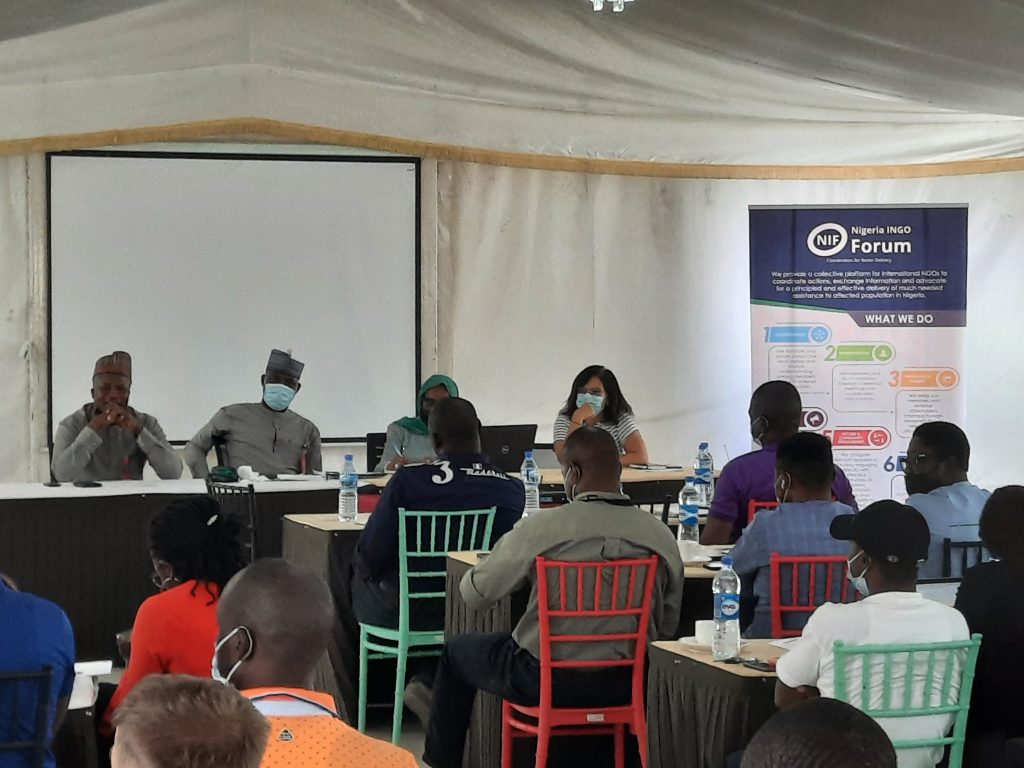
The lists required from the INGOs and NGOs will enable the EFCC through the Special Control Unit Against Money Laundering (SCUML) identify and verify the actual beneficiaries of the palliatives and cash provided by donors so that the funds will not get into the hands of wrong persons during disbursement.
‘‘Our engagement with the INGOs is to ensure and enforce compliance with the regulations and laws against money laundering and to combat financiers of terrorism activities and this can only be achievable through proper identification of the beneficiaries of the Aids flows provided by the INGOs,’’ Isei said.
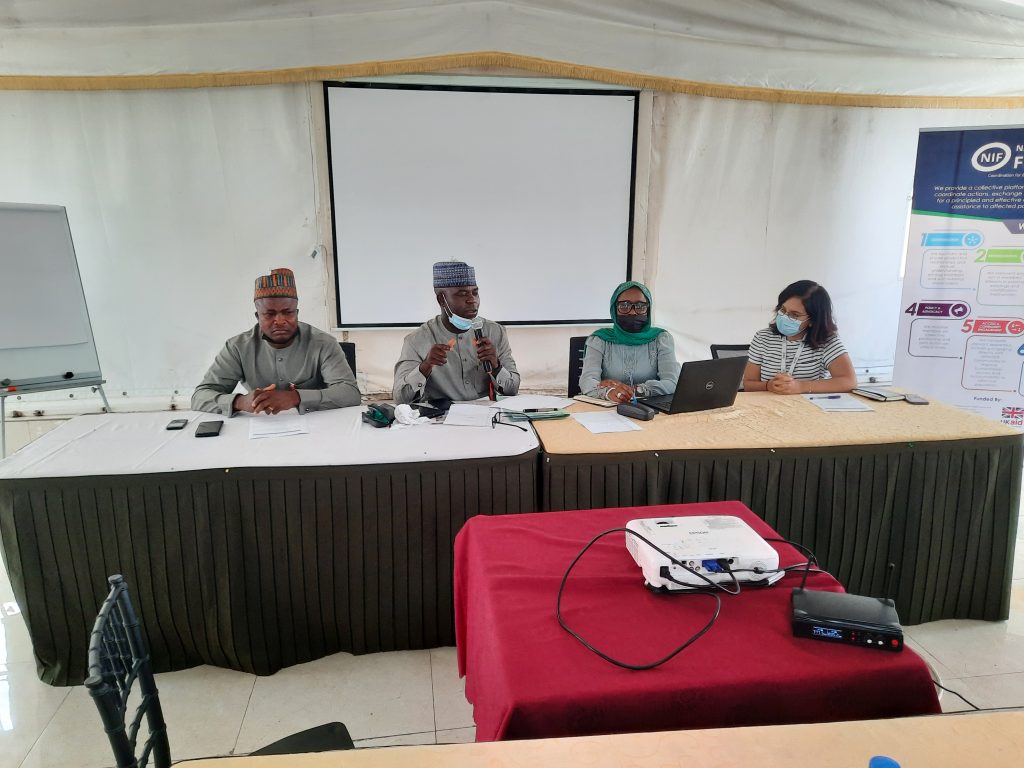
He emphasized the need for transparency and accountability by INGOs in the discharge of their humanitarian duties.
The SCUML Director reiterated the importance of presenting ‘‘Cash Notification Forms’’ to the Maiduguri Command for vetting and approval before disbursing funds to ‘Internally Displaced Persons’ to reduce the risk of sabotage and bring financiers of terrorism to book.
He warned that adequate sanctions as provided by law will be meted to any erring INGO and NGO that refuse to conform to the laws and regulations.
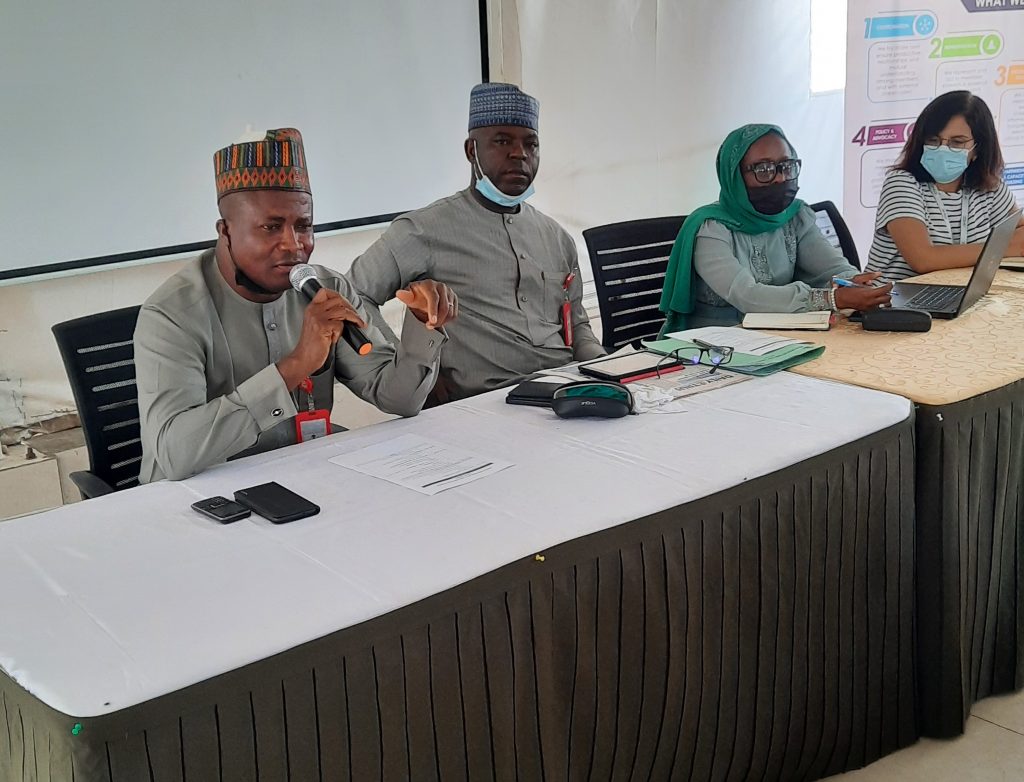
The Deputy Coordinator of the Forum, Yasmine Chawaf commended the EFCC for its proactive approach towards combating money laundering and terrorism financing, especially efforts to ensure that monies declared and moved to the IDPs camps gets to the right people in the Northeast.
The Forum is absolutely confident of having a more robust collaboration under the new leadership of the EFCC to further enhance effective service delivery to humanity. Also, we assure the Commission of our maximum cooperation at all time’’, she said.
Present at the meeting were the Maiduguri Zonal Commander, Onwukwe C. Obiora and Mary Amachree Ibinabo, Assistant Director, SCUML
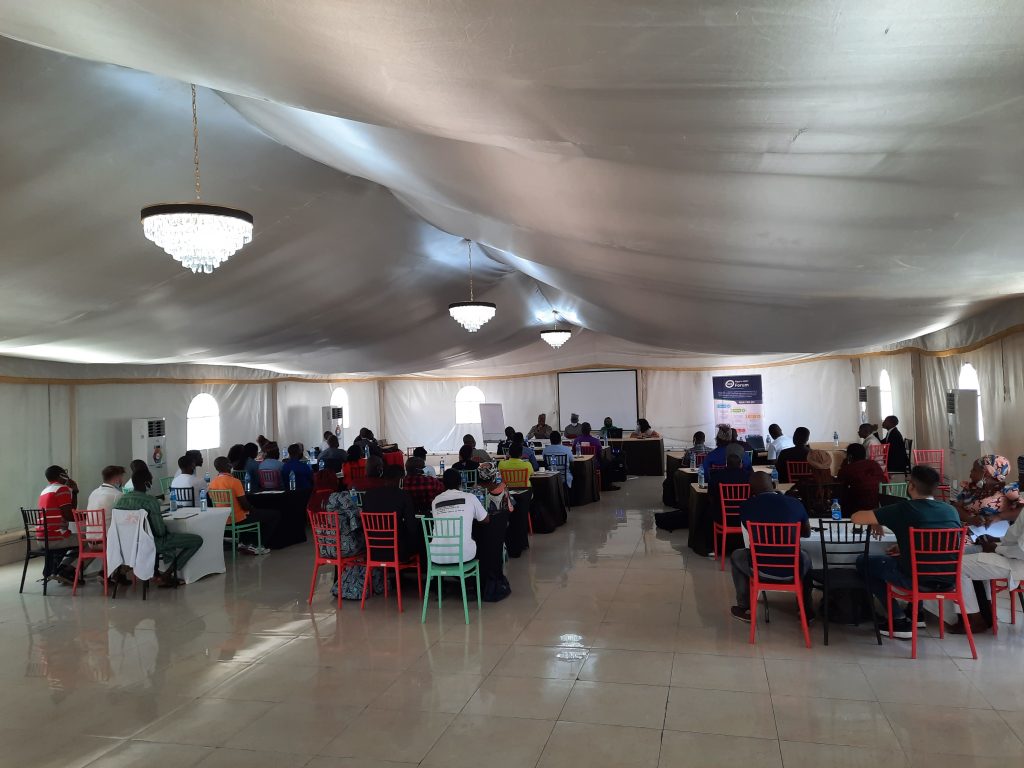

The Economic and Financial Crimes Commission EFCC and Special Control Unit against Money Laundering SCUML in conjunction with the Presidential Artisanal Gold Mining Development Initiative PAGMI, today 27th July 2021, held a one-day sensitization and town hall meeting for artisanal and small scale miners in Minna, the Niger State capital.
Addressing the miners at the event with the theme:“EFFECTIVE IMPLEMENTATION OF ANTI-MONEY LAUNDERING AND COMBATING THE FINANCING OF TERRORISM MEASURE IN THE DNFBPs SECTOR”, the Director of SCUML, Mr. Daniel Isei, who was represented by the Head Strategic Analysis, Mrs. Ibinabo Mary Amachre said the purpose of the workshop was to sensitize dealers in precious stones and metals of their AML/CFT obligations, create awareness, and build competence in their compliance abilities.
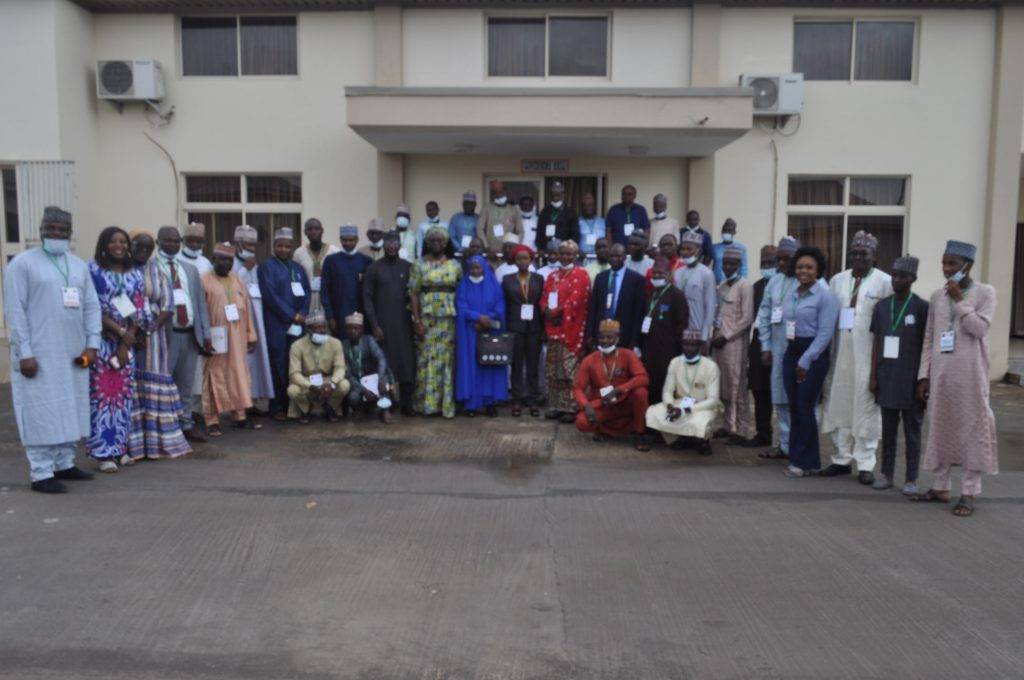
Stressing the reason for the sensitization programme, Daniel Isei noted that “criminals have now turned their focus on the dealers in precious stones and metals sector to perpetrate money laundering, terrorist financing, as well as carry out most of their nefarious criminal activities including kidnapping and banditry”.
According to the SCUML boss, “in recognition of this phenomenon, it becomes incumbent on us to take deliberate and decisive actions to stop criminals from abusing the dealers in the sector. We must therefore be conscious of our obligations and responsibilities under the Nigerian AML/CFT regime and develop a culture of compliance with AML/CFT measures”.
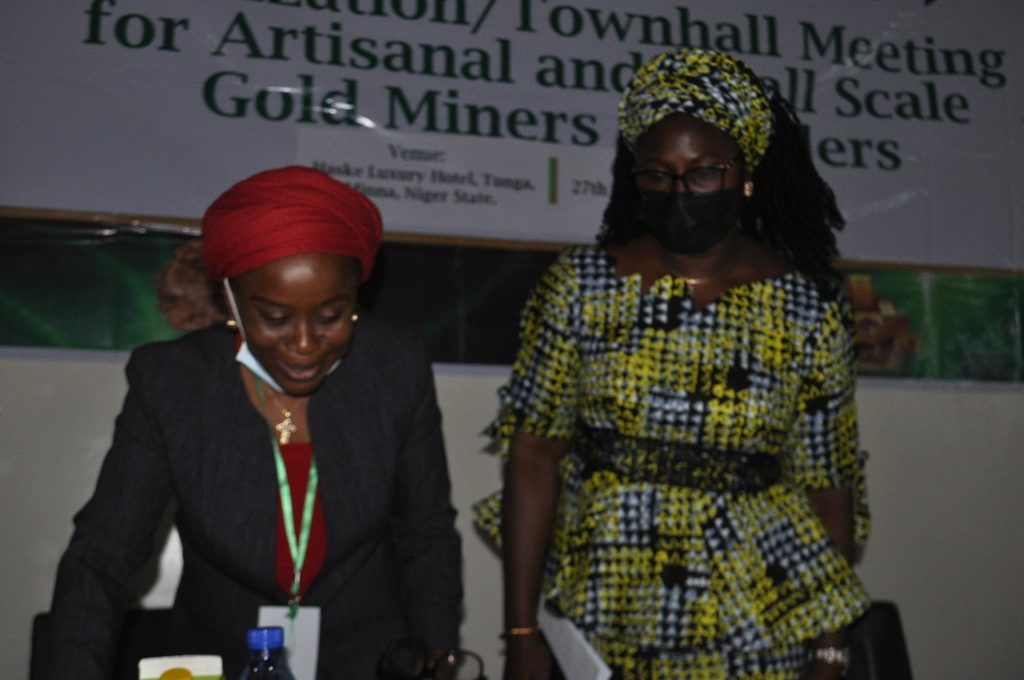
The Executive Secretary, PAGMI, Hajiya Fatima Umar Shinkafi who was represented by Dr. Martina Ananaba said the core mandate of PAGMI is to forge the formalization and integration of artisanal gold mining activities into Nigeria’s legal, economic and institutional framework. As stated by her, “PAGMI’s focus and purpose for this town hall meeting is three-pronged. The first is to sensitize the gold traders, dealers and miners in the gold supply chain on the existence, role and purpose of PAGMI and what it can offer to the gold trading society. The second is to demonstrate our collaboration with the EFCC and clarify how we would both be acting together in this landscape towards our joint objectives, and the third is to bring to your attention the relevant laws within the sector which cover both the PAGMI and EFCC operations. The knowledge of these laws will arm you in carrying out your business legally and without fear of any reprisals”.
Highlighting the advantage of the initiative, Hajiya Shinkafi said the collaboration between PAGMI and EFCC was necessary and timely for revenue development.
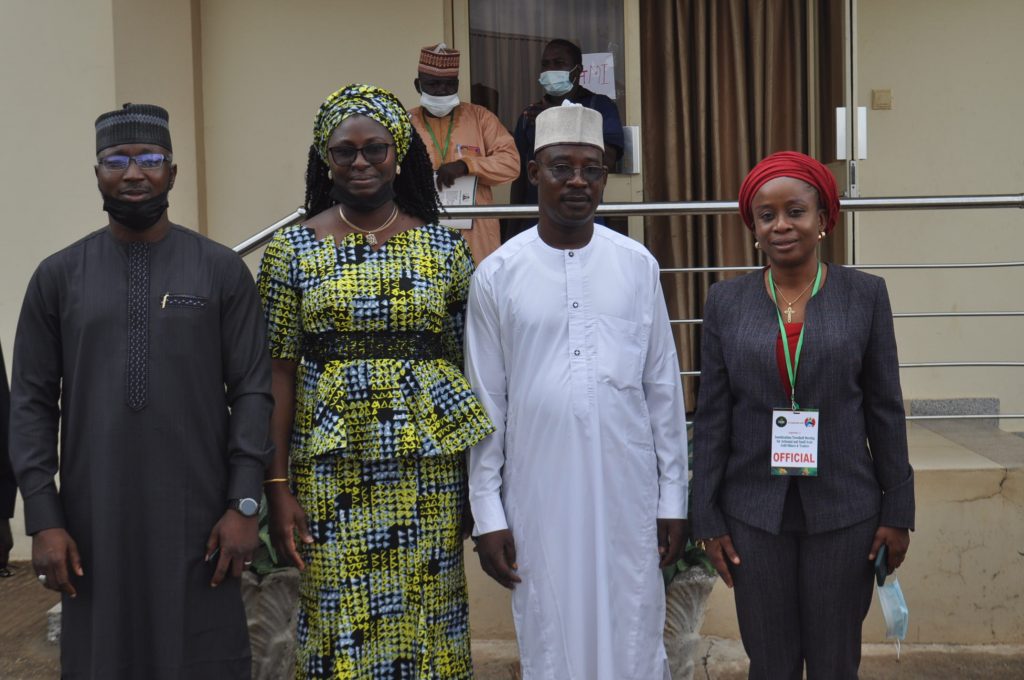
While appreciating the Commisssion and SCUML for this initiative, Abdulkarim Muhammed, Secretary of Gold Sellers Association of Minna Modern Market, Niger State and Hon. Uba Adamu, Public Relations Officer, Miners Association of Nigeria Niger State Chapter, expressed their delight in this collaboration, underscoring their association’s disapproval of using the sector to launder money or finance terrorism. They reassured their sector’s internal audit mechanism which enables them to fish out anyone associated with these crimes.

In the spirit of collaboration and cooperation, the Director of SCUML, Mr. Daniel Isei, having the mandate of the new Executive Chairman of the EFCC, paid courtesy visits to the Leadership of the DNFBP SROs. The visits were aimed at seeking partnership and synergy in the fight against money laundering, terrorism financing and proliferation financing amongst the DNFBPs in Nigeria.
During the visits, the Director also used the opportunity to enlighten and sensitize the leadership of the SROs on the AML/CFT obligations, duties and liabilities of their members and need for collaboration.
On their part, the Leadership of the SROs pledged their unalloyed supports for SCUML and by extension, the EFCC in its new drive in the fight against Money Laundering and Terrorism Financing. They also reiterated their commitment to ensure that their members comply with the Nigeria AML/CFT laws and supplementary regulations.
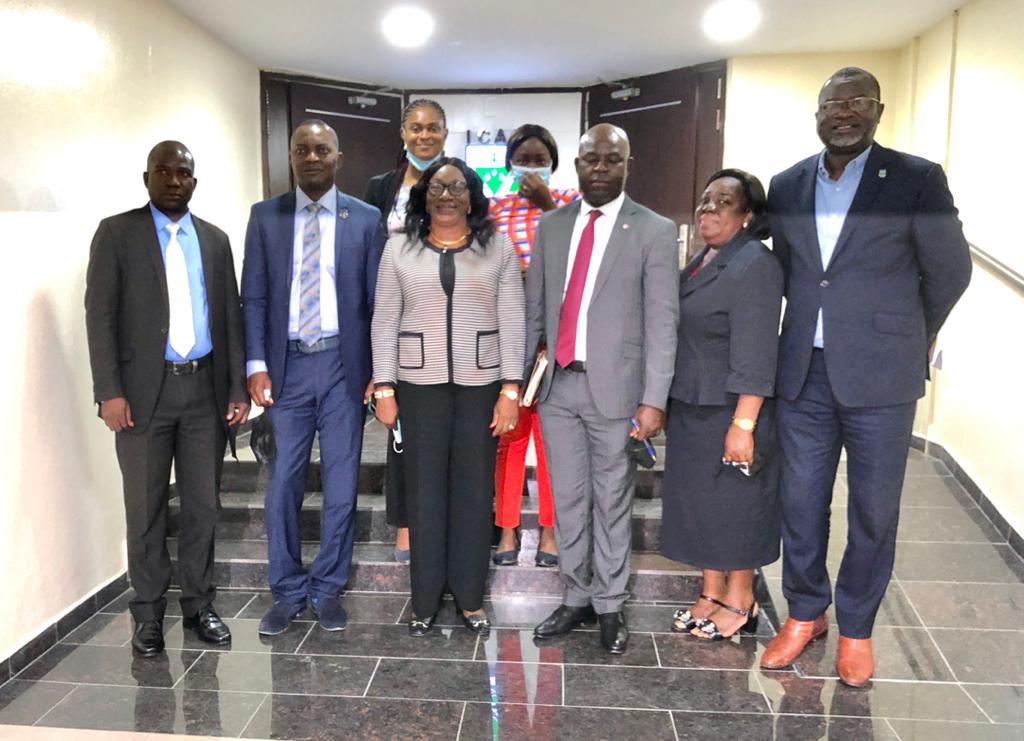
The Director, in a company of some of his senior officers visited the SROs at their respective Corporate Headquarters, in Lagos and Abuja. The following SROs and TAs were:

SCUML organised a 2-day zonal sensitisation workshop for Self Regulatory Bodies (SRBs) in the Designated Non-Financial Business and Profession (DNFBP) Section on Anti-Money Laundering and Countering Financing of Terrorism (AML & CFT). This porgramme was funded by the European Union and held on 30th and 31st January 2019.

SCUML held a Two-Day Zonal Workshop for the Sensitisation of DNFBPs on their Compliance Obligation in the Nigerian AML/CFT regime.